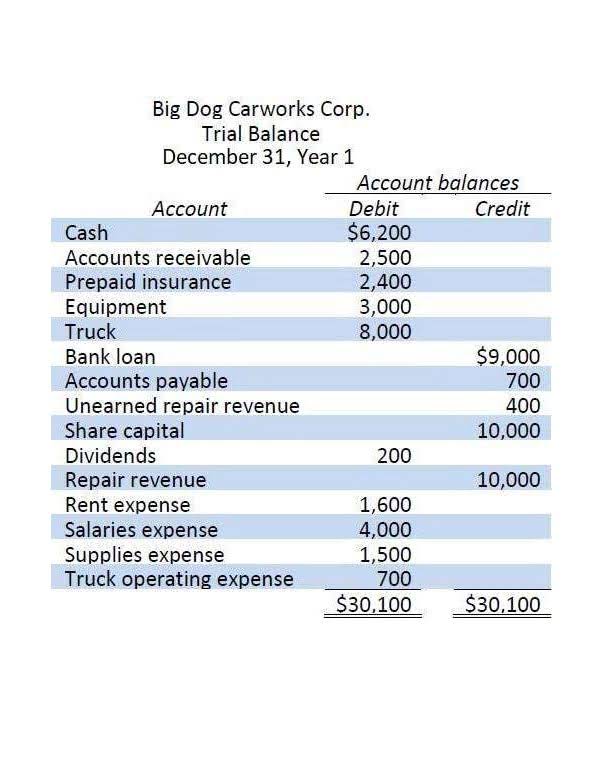
These audits provide an objective evaluation that enhances the credibility of financial reports, assuring stakeholders that the information presented is reliable. The transparency achieved through external audits is vital for maintaining investor confidence what are retained earnings and meeting regulatory requirements. Furthermore, regular training and updates on evolving accounting standards are essential for accountants to maintain compliance. As financial regulations continue to change, staying informed allows accountants to adapt and implement necessary changes effectively.
- When individuals maintain clear and honest records of their financial activities, they can better understand their spending habits and make necessary adjustments.
- When everyone is on the same page regarding financial objectives, it minimizes misunderstandings and promotes a culture of openness.
- Accountants play a crucial role in enhancing stakeholder confidence through financial transparency.
- This proactive approach to governance is vital for maintaining transparency and trust in financial practices.
- This, in turn, supports their mission and ensures that they can continue to make a positive impact.
- The Securities Act of 1933 mandates that companies disclose essential financial information through the registration of securities.
How to ensure compliance with the reinstated Corporate Transparency Act
- This transparency is crucial for building and maintaining investor confidence, as stakeholders rely on accurate data to make informed decisions.
- Internal controls are processes and procedures implemented to protect an organization’s assets and ensure the integrity of its financial information.
- Implementing financial controls is essential for accountants to ensure financial transparency within an organization.
- Through our courses and coaching, individuals and ministries can find the support they need to overcome challenges and thrive in their mission.
- The board of directors holds the ultimate responsibility for the financial health of the organization.
- This classification provides insight into the funds available for general use, those restricted by donors for specific purposes, and endowments meant to be maintained in perpetuity.
- These regulations ensure that nonprofits operate transparently and are held accountable for their financial activities.
It also opens the door for better communication between other departments and finance, which helps improve collaboration too. Transparency is only effective when everyone involved understands the financial information being shared. Providing comprehensive training to your employees can help bridge any gaps in their understanding of financial terms, reports, and their implications.
What must a nonprofit disclose to the public?

Their expertise helps in identifying discrepancies and ensuring compliance with regulatory requirements, thereby enhancing the credibility of the financial statements. This transparency fosters trust among investors, creditors, and other stakeholders, as they rely on these documents for insights into the company’s performance and future prospects. Accountants play a crucial role in achieving financial transparency by preparing, analyzing, and presenting financial data in a clear and consistent manner. They ensure compliance with regulatory requirements and ethical standards, financial transparency which is essential for maintaining the integrity of financial reporting. Through their expertise, accountants help organizations build a culture of transparency that benefits all stakeholders involved.
- By promoting a culture of accountability and transparency, accountants contribute significantly to the organization’s reputation and long-term success.
- They are typically categorized into unrestricted, temporarily restricted, and permanently restricted net assets.
- Accountants must navigate complex situations where ethical dilemmas may arise, and their commitment to ethical practices helps prevent fraud and misrepresentation.
- Businesses should adopt standardized accounting principles and ensure that financial statements are accurate, timely, and accessible.
- In conclusion, accountants play a pivotal role in fostering financial transparency within organizations.
Regulatory Frameworks Promoting Financial Transparency.
This includes maintaining accurate financial records, preparing financial statements, and ensuring compliance with accounting standards and regulations. Nonprofit organizations must navigate a complex landscape of regulatory requirements and standards to maintain their financial Retail Accounting integrity and public trust. These regulations ensure that nonprofits operate transparently and are held accountable for their financial activities. In today’s digital landscape, accountants play a crucial role in ensuring data security and privacy, which are essential components of financial transparency. As custodians of sensitive financial information, accountants must implement robust security measures to protect against unauthorized access and data breaches. This responsibility not only safeguards client information but also upholds the integrity of financial reporting.


For instance, companies that have adopted integrated reporting—a framework that combines economic and non-financial data—have seen improvements in investor confidence and stakeholder engagement. Trust serves as the foundation of any financial relationship, and transparency plays a crucial role in strengthening that trust. When transparent about their operations, performance, and challenges, financial institutions signal integrity and reliability. Stakeholders—investors, customers, or regulators—are more likely to engage with and support institutions that operate with openness. Trust derived from transparency not only enhances reputation but also drives long-term success. It ensures taxpayer confidence and demonstrates effective use of public funds, contributing to better governance and accountability.


Comentarios recientes